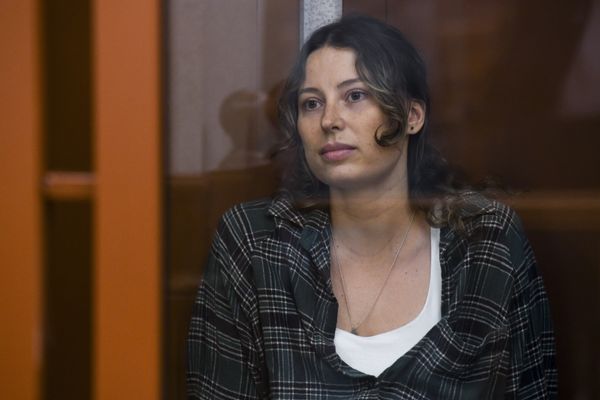
Support truly
independent journalism
A New Hampshire state trooper who fatally shot a man at a psychiatric hospital in November shortly after the man killed a security guard was justified in using deadly force, the state attorney general said in a report Thursday.
The trooper, Nathan Sleight, fired at John Madore on Nov. 17 after Madore fatally shot Bradley Haas, a state Department of Safety security officer who was working at the New Hampshire Hospital’s front entrance. Madore was a former patient at the Concord hospital.
The report said Madore entered the hospital and fired a pistol at the unarmed Haas, who was standing near the entrance, “immediately and without warning" before firing multiple shots at the lobby wall, a switchboard service window, a secured door leading into the hospital from the lobby, and back at Haas.
He started to reload his pistol when Sleight drew his own service pistol, opened a door leading from his office into the lobby and commanded Madore to drop his gun.
.Madore turned and faced Trooper Sleight, ignored his commands and continued to try to reload his pistol,” Attorney General John Formella's report said. Sleight shot him and Madore fell to the floor.
“While on the floor Madore again continued to try to reload his pistol, causing Trooper Sleight to fire the remaining ammunition in his service pistol at Madore in an effort to stop Madore from reloading,” the report said.
At about that time, a residential patient who was unaware of what was happening entered the lobby and heard Madore say something to the effect of “I hate this place,” the report said. Sleight escorted the man back to the parking lot.
Video cameras showed that all those events happened in under a minute.
The report said Sleight's conclusion that Madore was an immediately deadly threat was “objectively and reasonably sound.”
Sleight has about 11 years of law enforcement experience.
The report noted that Madore had a history of mental health issues and had previously been a residential treatment patient at the hospital for 13 days in February 2016 and again for approximately nine months between May of 2016 to March of 2017.
His father told investigators that Madore previously expressed paranoid ideations that the providers at the hospital were trying to harvest his organs, which he continued to periodically discuss even after his discharge.







